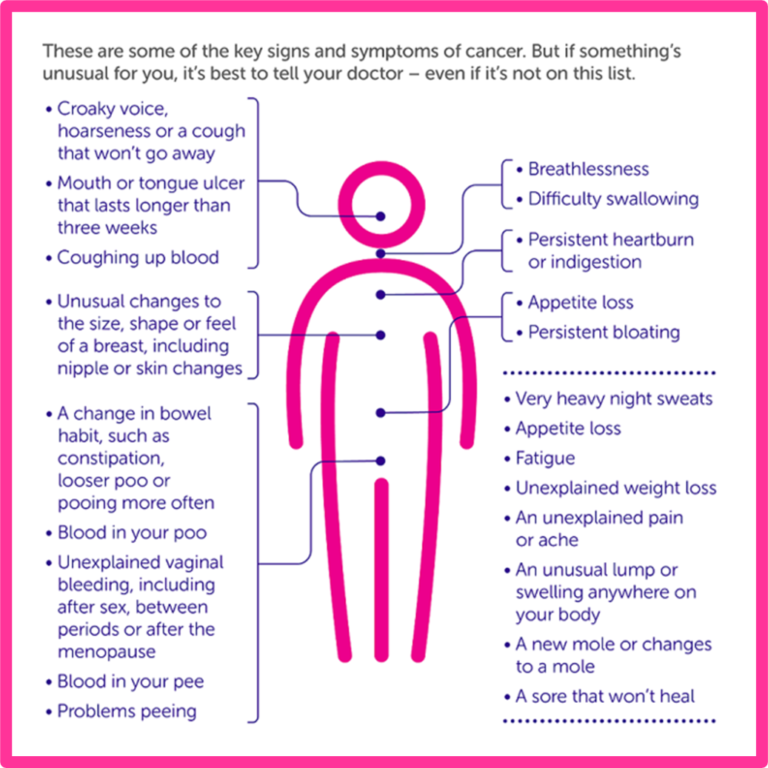Cancer awareness
We are working together to reduce rates of cancer and diagnose people with cancer earlier.
Spotting cancer early saves lives
Although the Covid pandemic has changed the way we work at the Surgery, we still want to hear from anybody – of any age – who has discovered something that looks or feels unusual.
There is a list of symptoms below – if you have any of these and are worried about cancer, please ring your Surgery to speak to a doctor or nurse as soon as possible. If we need to examine you we will book a face to face appointment to check you over.Cancer screening programmes are still running
Screening is designed to pick up early cancer changes in people who feel healthy, so please do not ignore an invitation for screening, even if you feel well in yourself.
There are national screening programmes for three types of cancer: breast, bowel and cervical cancer. Surgeries are still doing smear tests as usual, so please book an appointment if your smear test is due (or overdue!)
Even if you have been screened, it is still important to tell your doctor if you notice something any new changes that aren’t normal for you.Can cancer be prevented?
There are steps you can take that will make developing cancer less likely.
– Not smoking or stopping
– Being a healthy weight
– A healthy diet with plenty of fibre and healthy proteins
– Protecting your skin in the sun
– Drinking less alcohol
– Exercising regularlyCancer symptoms
www.cancerresearchuk.org has helpful information about cancer symptoms and seeking help if you are concerned.
Symptoms of cancer can be general (unexplained pain, weight loss or extreme and disruptive fatigue lasting more than 2 weeks and not resolving with rest) or specific to certain cancer types (a good selection of which are summarised below in an infographic from CRUK). More often these symptoms are a sign of something less serious, but if it is cancer, and it can be diagnosed and treated early, it can make a real difference.
www.cancerresearchuk.org/cancer-symptoms
Cancer can occur at any age, but is most common in people aged 50 or over. However, whatever your age, if you are concerned about any symptoms you are having, whether new, unusual or persistent, get them checked out.Cough
One of the symptoms of coronavirus is a new continuous cough. In some people, a continuous cough can also be a symptom of cancer.
If you have a cough that is continuing for more than 2-3 weeks – no matter how it started – and especially if you also have other symptoms such as unexpected weight loss, fatigue or loss of appetite, please speak to your GP.
Please see www.nhs.uk/live-well for further information and support.
